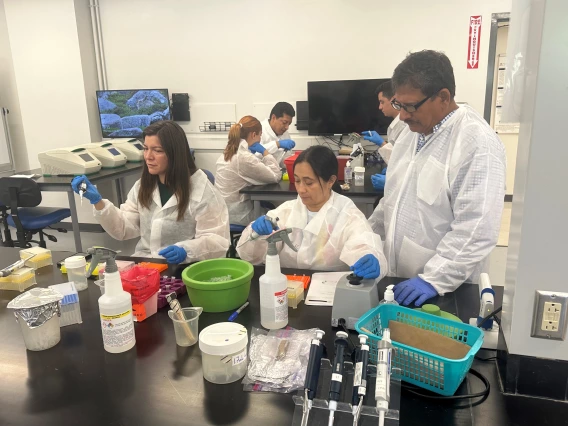Welcome to the University of Arizona Aquaculture Pathology Lab!
For the past 31 years the Aquaculture Pathology Laboratory (APL) has been dedicated to providing quality diagnostic and research services for the growing worldwide shrimp industry. The APL is a USDA-APHIS-approved, ISO/IEC 17025:2017 and 17043:2023 accredited, and OIE/WOAH-approved reference laboratory.


